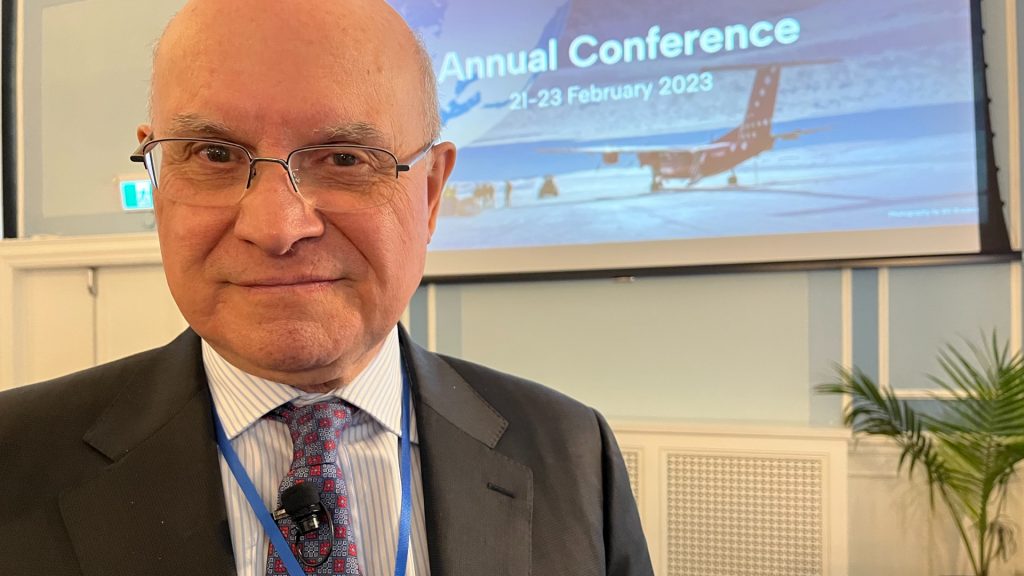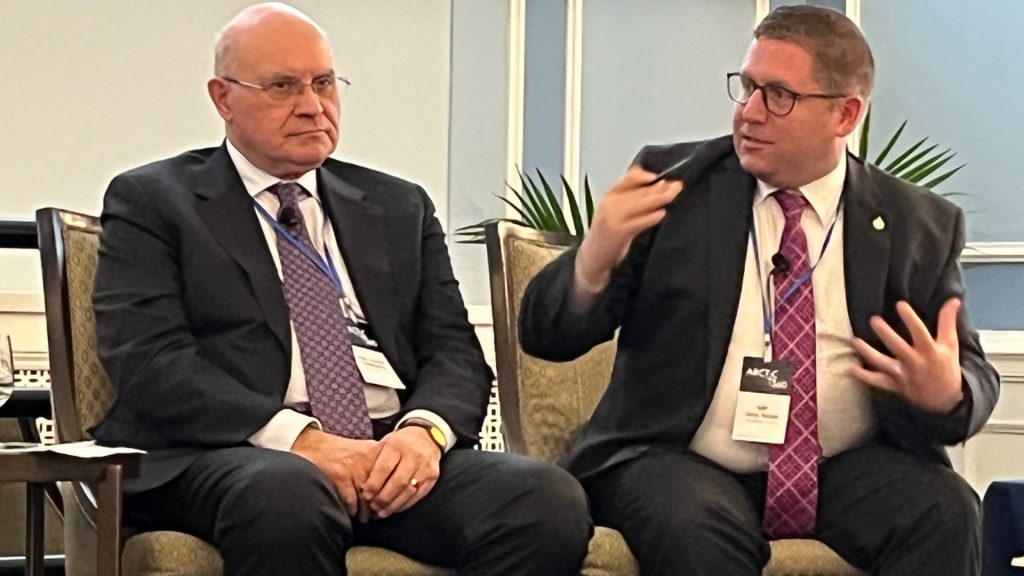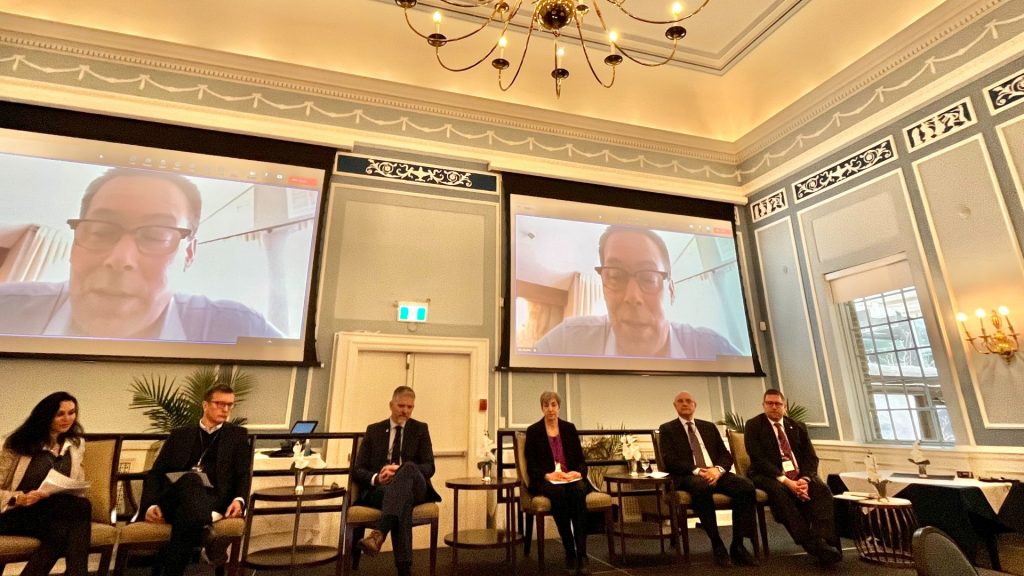Canada needs new approach to meet Arctic challenges, conference hears

If Canada wants to tackle the triple threat of climate change, Russian aggression, and the Arctic infrastructure deficit, it must rethink its approach to the North and incorporate long-term planning that transcends partisan politics, a Canadian conference heard on Thursday.
“We need to look at a vision for the North beyond the electoral cycle and start planning for 20, 30 and 50 year outlooks where important infrastructure can be built and finalized,” Conservative MP John Nater told Eye on the Arctic.
“It’s important for northern communities and ensures the world knows, including some of our more concerning neighbors, that the Arctic is ours and we can protect and defend it.”
Nater was one of several panelists at the Arctic360 conference in Toronto who spoke on Canada’s long-time lags on modernizing defense, social, and transportation infrastructure in the North.
Panelists stressed no particular political party was to blame, but rather that election cycles stymied the kind of long-term planning necessary for realizing major projects in Arctic Canada, where long term planning and commitments are required to see projects through to the end given the high costs, limited infrastructure and challenging conditions.

Russia’s invasion of Ukraine has brought home how vulnerable Canada is in the North, and northern premiers have become increasingly vocal about their concerns.
David Collenette, chair of the NATO Association of Canada, and former transport minister under Liberal Prime Minister Jean Chrétien, said the crisis could be an opportunity for governments to do things differently, no matter who’s in power.
“It behooves us to try to make the point that there should be consensus going forward and it should be a priority,” he said.
Canada’s National Shipbuilding Strategy is one example of a project that has carried on from the term of Conservative Prime Minister Stephen Harper and continued under Liberal Prime Minister Justin Trudeau, but more projects are needed, said panelists.
Critical infrastructure
Canada’s North lacks critical infrastructure in almost every sector, including communications and technology, defense, and energy.
The gap has implications not only for Arctic security but also for the environment and the transition to renewable energy sources.
“[The whole push towards decarbonization] is a big challenge when you go into the Arctic and there isn’t the necessary energy production or energy replenishment infrastructure,” Paul Barrett, Davie Shipbuilding’s chief communications officer, said.
“What that means is that a lot of the so-called renewable solutions are actually more in the moonshot territory right now. Hybrid diesel and electric is still going to be the preferred propulsion as we move forward until we can get other renewable sources of fuel.”
Barrett said the company is working with Laval University to explore alternative options, such as ammonia, but finding a viable renewable energy source remains a significant challenge.
Impact on northern investment

Alex Buchan, the director of Nunavut affairs and stakeholder engagement at Agnico Eagle, a gold mining company, says the lack of renewable energy infrastructure is also affecting investment in Arctic Canada.
“The challenge we have in Nunavut is we have no energy infrastructure and have no other option but to use diesel to power our operations, so we’re no different than the communities we’re adjacent to, so we have very high carbon intensive gold production. The investment community is looking at our company, along with many other options, and saying ‘Why would we invest in a company that is diesel dependent when we can invest in a company that is on a clean hydro energy source.’
“This problem will get greater as time goes on.”
The conference, put on by the Arctic360 think tank, ran February 21-23.
The theme of this year’s event was Tilting the Globe: Accelerating Cooperation, Innovation and Opportunity and focuses on business development and the changing geopolitical context in the North.
Write to Eilís Quinn at eilis.quinn(at)cbc.ca
Related stories from around the North:
Canada: Arctic Canadian community says oil moratorium renewal doesn’t go far enough, Eye on the Arctic
Finland: Russian shoppers take Norway’s Schengen shortcut to Arctic Finland, Yle News
Greenland: Historic Hans Island agreement with Canada moves from Copenhagen to Greenland, Eye on the Arctic
Iceland: Climate, integration & Arctic among priorities in Iceland’s Nordic Council of Ministers program, Eye on the Arctic
Norway: Last Norwegian businessmen in Murmansk mum on customers, The Independent Barents Observer
Russia: Arctic oil-driller Gazprom Neft creates its own private military company, The Independent Barents Observer
Sweden: Sweden, Norway and Finland cooperating to attract workers to the Far North, Radio Sweden
United States: A year after Russia invaded Ukraine, a walrus discovery is caught up in geopolitics, Alaska Public News




How-2 subscribe to Eye on the Arctic. My wife Claudette Fortin worked at the Arctic Council and we would like to maintain a good source of information about the plan regions out of personal interest.
Cheers